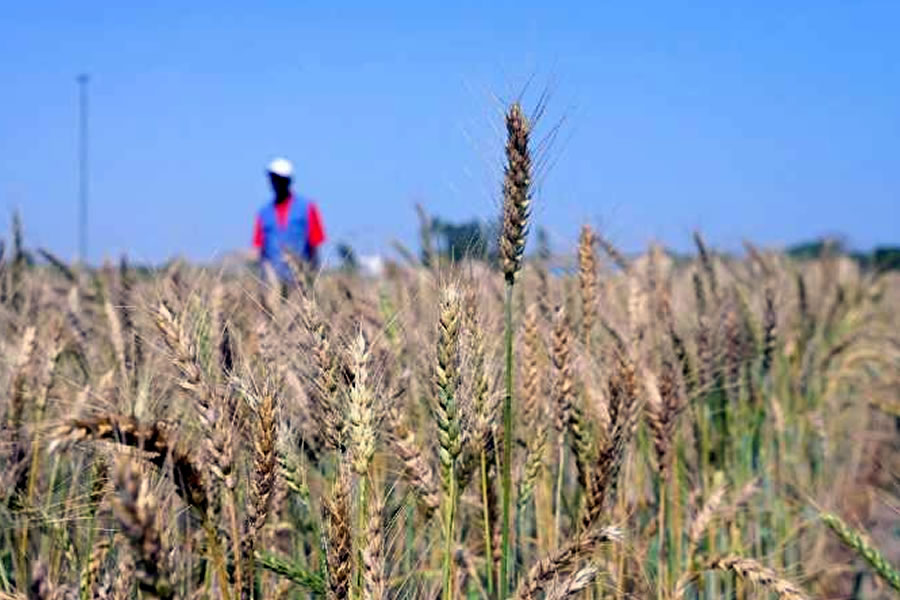
The AfricaRice centre in Boudiouck, Saint-Louis, this week hosted the start of a national workshop focusing on wheat. The aim of the event is to lay the foundations for a strategy to boost local wheat production.
The initiative comes from the Senegalese Ministry of Agriculture through its Directorate of Research and Innovation, which works with international organisations to strengthen food security. The project aims to introduce the eight new wheat varieties developed by the Senegalese Institute of Agricultural Research (ISRA) into the field.
According to El Hadj Malick Lèye, coordinator of the FIRST ACT programme and ISRA researcher, the varieties are already being tested in demonstration plots in the Senegal river valley. Farmers participate in guided tours that allow them to observe the development of the crops under real conditions.
The workshop also included training sessions for producers and technicians. These covered topics such as sowing techniques, irrigation management and good harvesting practices in order to optimise wheat yields on local soils.
Senegal is heavily dependent on wheat imports, which exceed 700,000 tonnes per year. Such initiatives aim to reduce this dependency and move towards greater self-sufficiency in staple food production.
The project will serve as the basis for a national roadmap that, in the medium term, aims to make wheat a viable alternative in Senegalese agriculture, diversifying its production system and offering new opportunities for the country's farmers.
